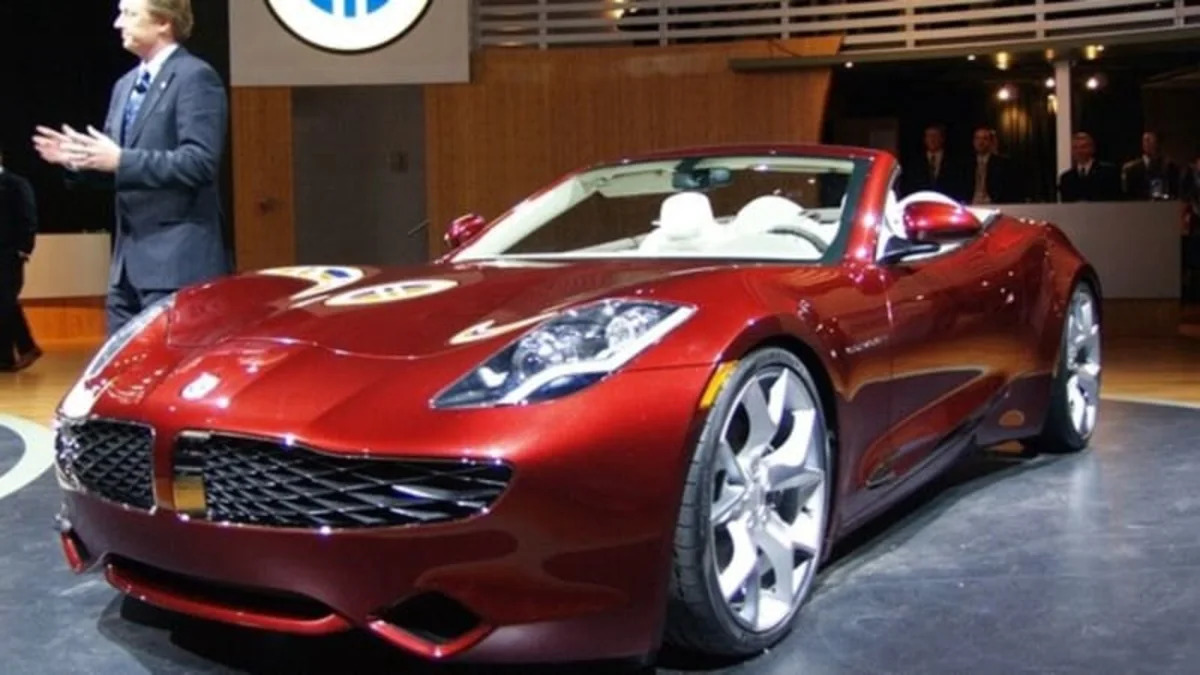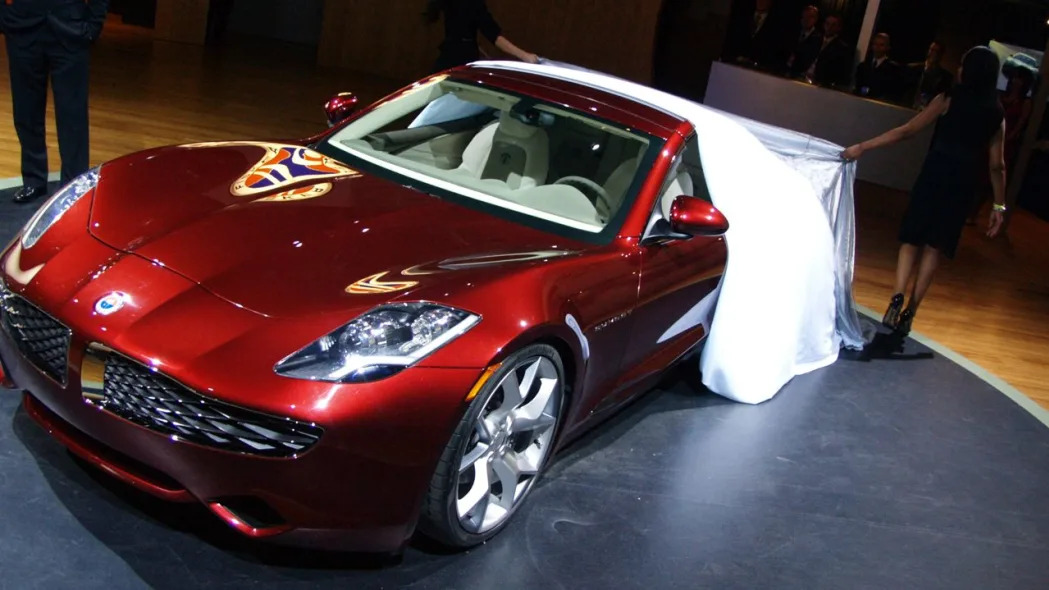Click above for high-res gallery of the Fisker Karma S
Developing and building cars costs money, a lot of it. The only people who think otherwise have never actually tried to do it. Any startup business is tough to get going, but one as capital intensive as manufacturing durable goods like cars is even more difficult. In recent years, many so-called "experts" have advocated out-sourcing most of the manufacturing and focusing just on developing the unique bits that make a product special. The problem with this strategy is that it takes away even more control over the end product from the company that originated it. That company also becomes highly dependent on the financial health of those suppliers.
When those suppliers are also selling to other automakers they become susceptible to whatever ailments their customers may pick up. It's like a day-care, one kid comes in sick and the next thing you know, everyone in the family of all the other kids is sick too.
When even the strongest automakers like Toyota and Honda don't have immunity to current economic virus, it becomes increasingly difficult for startups to get a foothold. Peppercom cleantech analyst Darryl Siry takes a look at the example of Fisker Automotive and its partner/supplier Quantum Technologies. Quantum's main revenue producing business of high pressure gas storage tanks is suffering because of the ills in Detroit. It's unclear how all this might end up affecting Fisker as it plans to move ahead with production of the Karma. Fisker is also at a disadvantage in getting DOE loans for its product development because it has out-sourced assembly to Valmet in Finland. Quantum is apparently applying for loans which will presumably be used to fund development and manufacturing of Fisker drivetrain parts in the U.S. It's a tough world out there, everyone is hurting.
[Source: Darryl Siry]



Sign in to post
Please sign in to leave a comment.
Continue